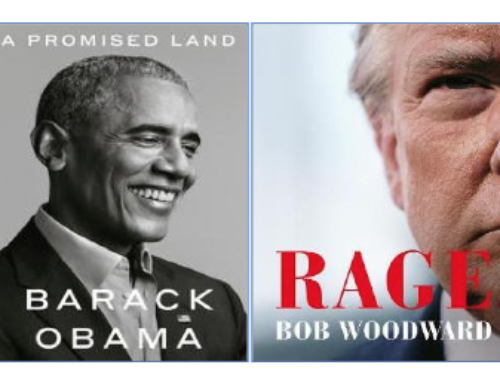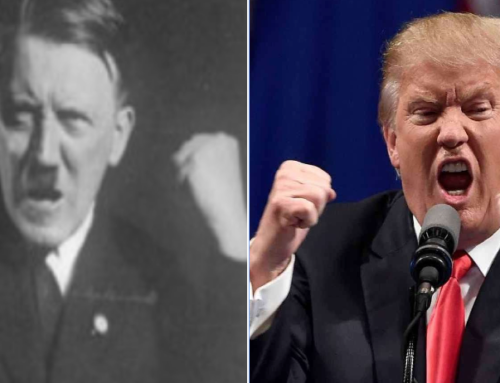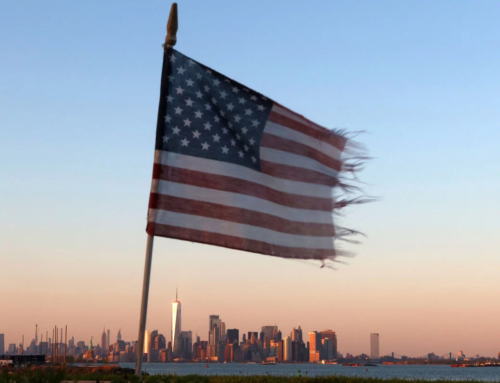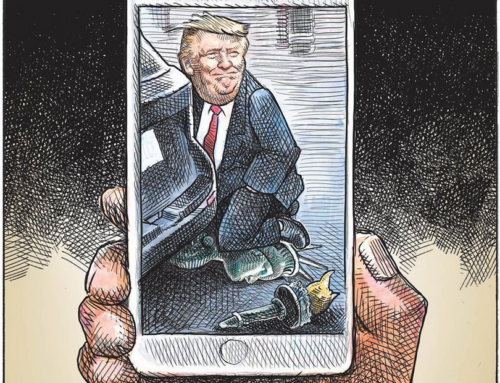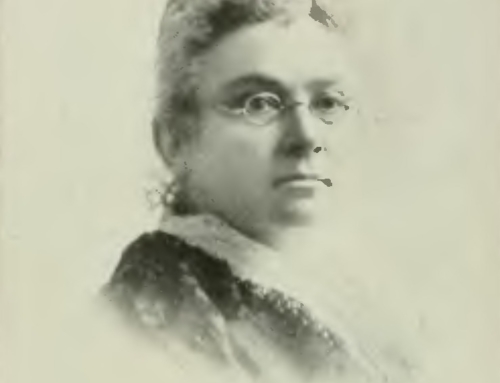An evidence-based exposé of Trump’s mob connections and his history of psychopathic behavior
Three things you might not know
- The public record is clear. For forty years Donald Trump has had personal and business connections with top mobsters, corrupt union leaders, labor fixers, con-artists and a convicted drug trafficker.
- Trump has been friends with the New York’s most notorious fixer, lawyer Roy Cohn, who was a mob consigliere, whose clients included “Fat Tony” Salerno, boss of the Genovese crime family and Paul Castellano, head of the Gambinos.
- Trump fits, to a T, the philosophical and psychological definition of an “asshole” – see book and two minute video below, Assholes: A Theory of Donald Trump by Aaron James.
If you don’t have time to read the entire book before November 8th, at least check a few of the most revealing chapters or read author David Johnston’s May 22, 2016 article in Politico, Just What Were Donald Trump’s Ties to the Mob?
(4 minute read)
David Cay Johnston is a Pulitzer Prize winning investigative journalist who has known Donald Trump for 28 years. His New York Times bestseller (2016) rips the veneer off of Trump’s well-crafted, hyper-inflated, brand image and exposes the troubled and frightening development of a man with mob connections and a longstanding history of psychopathic behavior, a man of invidious character who could become the President of the most powerful nation in the world.
Sneak preview
Here are a few excerpts that give you a glimpse inside the vindictive and disturbing life of Donald Trump.
Introduction:
- Fred Trump [Trump’s father] had become a main target of federal investigators looking into profiteering with the tax dollars intended to help World War II veterans.
- Trump has worked just as hard to make sure few people know about his lifelong entanglements with a major cocaine trafficker, with mobsters and many mob associates, with con artists and swindlers. He has been sued thousands of times for refusing to pay employees, vendors, and others. Investors have sued him for fraud in a number of different cities.
- Just as Friedrich Trump [Donald’s grandfather] had engaged in illicit businesses to build his fortune in the late nineteeth century, his son Fred Trump turned to an organized crime associate as his longtime partner to build his own. Decades later, Donald Trump would also do business with the heads of the same families … developing numerous business connections with an assortment of criminals, from con artists and a major drug trafficker to the heads of the two largest Mafia families in New York City, as we shall see.
- Trump in his junior year transferred to University of Pennsylvania in Philadelphia. Penn has a famous and highly regarded graduate business school that Trump often invokes [Wharton School of Business]. He did not in fact study there. He was enrolled as an undergraduate and received a bachelor of science in economics.
Chapter 3:
- Trump has been a party in more than 3,500 lawsuits, some of them accusing him of civil fraud.
Chapter 4
- News reports valued Fred Sr.’s estate at somewhere between $100 million and $300 million.
- Donald Trump’s application of his motto of vengeance on his blood relatives … caused deep division within his family. [He] developed a close relationship with one of the most vicious and heartless men who ever lived in America, a mentor who also believed revenge was the best policy and who became a kind of second father: the notorious Roy Cohn. [known advisor to the mob].
Chapter #5:
- “I don’t kid myself about Roy,” Trump wrote. “He was no Boy Scout. “… you could count on him to go to bat for you,” Trump wrote. Loyalty … was far more important than integrity. That is, of course, the kind of perspective we expect from mobsters, dictators, and others whose primary regard is for unflinching support, not for allegiance to truth or facts.
- The Justice Department sued Donald Trump, his father, and Trump Management “for refusing to rent dwellings and negotiate the rental of dwellings with persons because of race and color … the settlement as “one of the most far reaching ever” to end racial discrimination in housing.
Chapter #6
- By choosing to build with ready-mix concrete rather than other materials, Trump put himself “at the mercy of a legion of concrete racketeers.” But having an ally in Roy Cohn mitigated Trump’s concerns. With Cohn as his fixer, Trump had no worries that the Mafia bosses would have the unions stop work on Trump Tower; Salerno and Castellano were Cohn’s clients. Indeed, when the cement workers struck in summer 1982, the concrete continued to flow at Trump Tower.
- Years later, Barrett [investigative reporter Wayne Barrett, author of Trump: The Deals and the Downfall] … reported that two witnesses observed Trump meeting at Cohn’s town house with Salerno, an association that itself could have cost Trump his casino owner’s license.
Chapter #7
- To disagree with Trump is to be wrong. To portray Trump in a way that does not fit with his image of himself is to be a loser. It is an approach to life that may work in business (where Trump can walk out and not deal with people who displease him), but government leaders do not enjoy that luxury, especially the president of the United States.
Chapter #8
- [1986] At the time, [Joseph] Weichselbaum was already a twice-convicted felon. [Then he went to work for Trump providing helicopter services]. Trump kept paying more than $ 2 million per year for Weichselbaum copters. Two months after Weichselbaum was indicted, the Weichselbaum brothers rented apartment 32-C at the Trump Plaza condominiums on East 61st Street in Manhattan. Trump personally owned apartment 32-C.
- When he was up for early release, Weichselbaum told his parole officer that he already had work lined up. He was Donald Trump’s new helicopter consultant. He also said he would be moving into Trump Tower. While he was behind bars, Weichselbaum’s girlfriend bought two adjoining thirty-ninth-story Trump Tower apartments.
Epilogue:
- Businessmen can, as Trump often does, dismiss people and move on. Presidents do not enjoy that luxury. They must contend with ever-present forces that are not subject to their control. A president cannot dismiss a troublemaking foreign head of state, cannot order Congress to pass laws, and cannot disobey the rulings of judges—not if we are to be a free people, living subject to the rule of law that protects our individual liberties. Yet Trump makes clear that he would do all these things. His vision is, in many ways, not that of a president but of a dictator, as many others have observed in both political parties and beyond America’s borders.
Further recommended reading

photo:ifunny.co
- Assholes: A Theory of Donald Trump by Aaron James. In the spirit of the mega-selling On Bullshit by Harry Frankfurt (2005), Aaron James, chair of philosophy at University of California, presents a theory of what an asshole is that is, according to reviews, both intellectually provocative and existentially necessary. James, like most of us, places Trump unquestionably in the typology of “the asshole” (i.e., someone who takes every advantage, has an entrenched sense of entitlement and is immune to criticism). See the two minute video below about James’s theory as set out in his first bestseller, Assholes: A Theory.
- Trump: The Deals and the Downfall by Wayne Barrett. Barrett is an American journalist and investigative reporter, a Fellow with the Nation Institute, contributor to Newsweek and adjunct faculty at Columbia Journalism School. He is the author of many articles and books about politicians including Ed Koch, Donald Trump and Rudy Giuliani.
- “State Investigation Report on Trump Shows Complexity of Alleged Mob Ties.” by Marcus Baram, Fast Company, March 7, 2016.
- “Just What Were Donald Trump’s Ties to the Mob?” by David Cay Johnston, Politico, May 22, 2016.
The evidence is overwhelming.
Video: Asshole: A Theory (2:02)
Dictatorship and authentic literature are incompatible… The writer is the natural enemy of dictatorship.
Ismail Kadare


